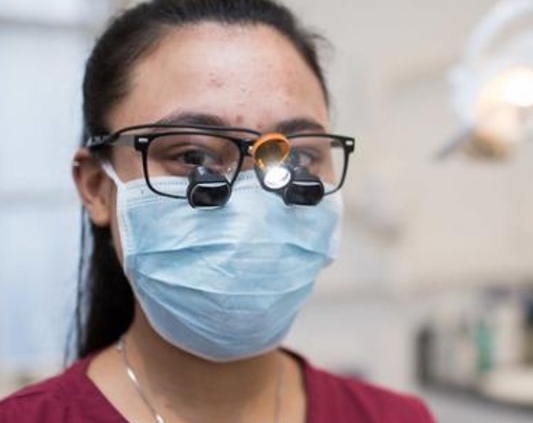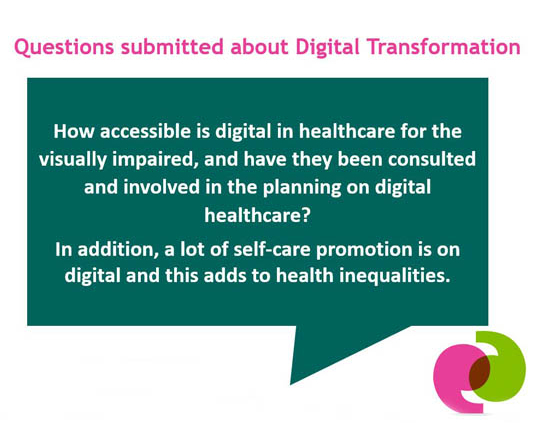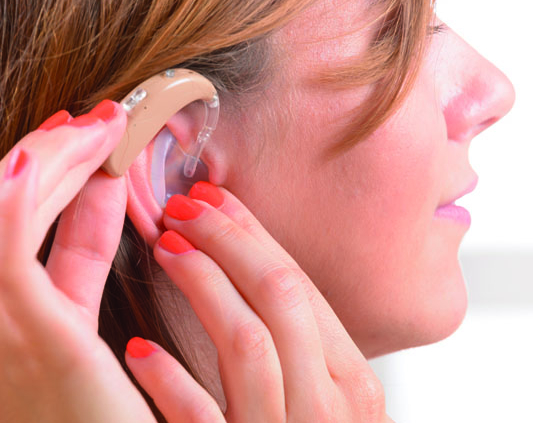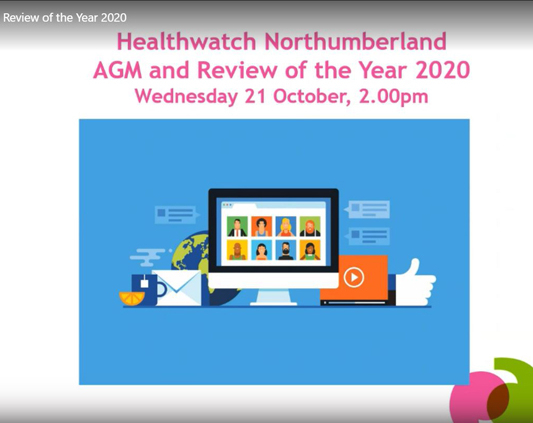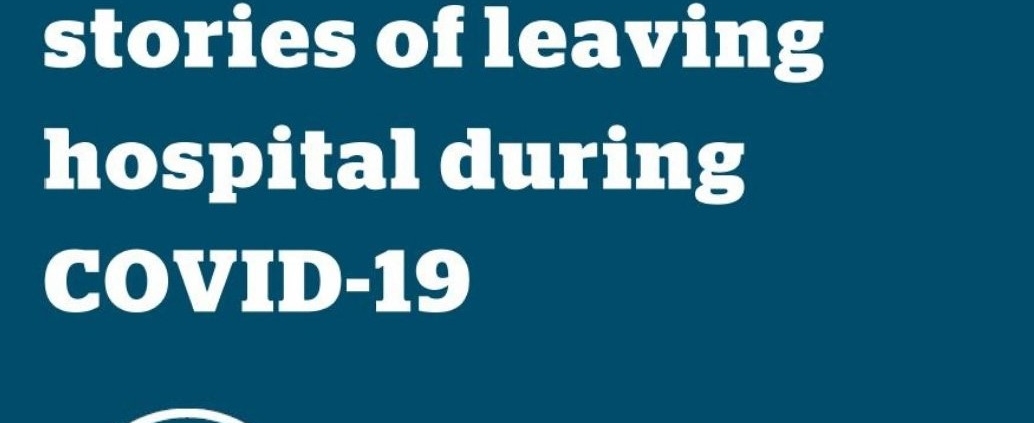The draft minutes from our AGM in October, plus answers to many of the questions raised before and during the event can be found below.
Questions for Healthwatch Northumberland
Q: My husband has multiple health conditions. Since March, paramedics have been called four times (via NHS 111/999 or GP). We have been told consistently that they would not take him to hospital, e.g. for a high temperature. Are paramedics instructed to routinely give this message, consequently deterring people from seeking help? We know from past experience when his breathing is normal for him, but cause for concern, and when he is deteriorating and likely to require intervention.
This whole experience leaves us feeling it is wrong to call for help. This is exacerbated by other consultations (GP and hospital) which feel ineffectual for a person with multiple comorbidities.
A: North East Ambulance Service said:
The staff who answer 111/999 calls are not routinely instructed to inform patients that they would not take him to hospital. Each individual is assessed in their own right and the context of their presenting symptoms. If an individual is identified as needing hospital access then we would recommended that. Where an individual can safely be transferred to hospital without ambulance intervention that will be recommended. This saves ambulances for those people where there is an absolute need to transport the patient with supported care on route.
During the period since March 2020 we have had different thresholds for answering calls depending on how severe COVID-19 has been. Things may change in times of high demand and depending on the changing government guidance as we learn more about the virus.
On some occasions we have advised people not to access hospital care, the outbreak of COVID19 meant hospitals may not be the same safe environment for people with weak immune systems as they were previously. In these cases, where care could safely and effectively be given at home that would be recommended.
Q: Why have mammograms for women over 71 been stopped with no indication of when they will start again. Newcastle Hospitals advised there is only a four month backlog. I have booked a private appointment. Also have GP surgeries been told to stop advertising the service.
A: This question has been submitted to Newcastle Hospital Trust and we will publish the answer as soon as we have it.
Q: I have seen that Being Woman charity gives out devices to people to access digital services. Is this service only for black, Asian and minority ethnic people or can anyone in Northumberland also access their service to get digital devices. One of my acquaintances in Amble has one and she was guided to connect up to GP services.
A: Thank you for your feedback and query around Being Woman. If you are looking for support around digital skills or would like to have a device to access digital resources we recommend you get in touch with them directly, either through their website: www.being-woman.org.uk contact them on 01670 857167.
Live questions:
Q: Where would I find more details about the Healthwatch Northumberland vacancy? Will there be a link available?
A: Derry answered. Yes we will make the link to our website available after the event or you can email info@healthwatchnorthumberland.co.uk to find out more.
Q: Do you have a view about the recent Look North feature about designated care home dementia spaces?
A: Derry answered. This is a policy decision and we don’t have a view in advance of the patient/carer experience but we are keen to find out more and hear from people about this if it is implemented.
Q: Are there any Clinical Commissioning Group (CCG) plans to communicate the Primary Care Network plan to the wider community?
A: Derry answered. HWN is always keen on how issues, changes and developments are communicated to the wider service user group so we will put this to the CCG and publish the answer.
Questions for our guest speakers from Northumbria Healthcare NHS Foundation Trust, Dr Alistair Blair and Judith Stonebridge, Public Health Consultant
Q: How accessible is digital in healthcare for the visually impaired, and have they been consulted and involved in the planning on digital healthcare? In addition, a lot of self-care promotion is on digital and this adds to health inequalities.
A: Judith answered. This is a really important question and definitely needs to be considered. The pandemic meant a rapid change overnight and there wasn’t much time for engagement, but we are doing that now and are keen to work with Northumberland County Blind Association. A significant amount of appointments are by telephone rather than computer so this may help and face-to-face appointments are still available if appropriate. We are keen to be as inclusive as possible, not just with appointments but with materials too.
Alistair added in regard to the self-care resources that digital resources are in addition to existing materials. Nothing has been taken away, talking books and Braille resources are still available.
Q: Are there any hospital sites or GP practices providing virtual group clinics in Northumberland? There are many patients who attended face to face group clinics who are now isolated and unsupported because of Covid.
A: Alistair answered. We need to separate group support, group education and group consultation. At present none are happening because it hasn’t been possible to get multiple people on to a secure platform. Zoom doesn’t meet the secure standards of the NHS. We’re looking into how group support and education could be delivered but it is harder to provide group consultations as there are issues with confidentiality. There is no way of knowing whether someone is recording the session. However, there are definitely opportunities here.
Q: What about increasing digital engagement and capacity building to facilitate digital engagement, especially those most at risk of poor health outcomes?
A: Judith answered. She said this is an issue which was discussed pre-Covid and inspired her to think about how people experiencing financial difficulties might not differentiate between letters in plain white envelopes from the NHS and elsewhere. There are plans to try to understand why people are not coming to appointments and what is preventing access. The pilots for the community hubs should help people develop digital skills. The Trust is also trying to make the language clearer on any letters sent out and will keep looking at data to help make improvements.
Q: Younger people might find digital engagement difficult if home is not a safe place or in cases of domestic abuse. How sensitive are services to these issues and how will it be addressed?
A: Alistair answered. There is a higher rate of mobile phone ownership and usage among young people. This is quite empowering as it is easier to make a quick call away from home rather than attend a face-to-face appointment which may be difficult if living with a controlling person. There are ways which people can signal over video if they are being threatened. The greater worry is that there are people who aren’t accessing health services at all.
Q: I recognise the value of digital consultation but it is still necessary to have face-to-face appointments. Can you reassure people digital appointments are not going to be the poor relation?
A: Alistair answered. If you need to examine someone you can only really do that by physical contact. People shouldn’t think of remote consultation as second class. It’s often just as good for information and sharing as face-to-face and the same amount of time for the clinician. It’s about choosing the right tool for the job.
Q: What about those practices who don’t have video links? Is connectivity in GP practices an issue?
A: Alistair answered. 90% of remote consultations are over the phone and all practices have phones. Every practice is also wired up for video consultations. Connectivity is more of a problem at the patients’ end. Sometimes image quality can be quite poor on video so texting a photo can be clearer.
Q: Is Northumbria Healthcare willing to look at the confidentiality agreements regarding virtual group clinics? There are many examples of virtual group clinics with confidentiality agreements templates in place.
A: The Trust is in discussions with Attend Anywhere (the system we use for virtual consultations) and they have confirmed they are planning to introduce a module for group consultations. They are hoping to have something in development this year with a plan to introduce next year. We are also looking into Microsoft Teams to see if this could be an option. We would be interested to see an example of one of these confidentiality agreements and what platform is being used.
Healthwatch Northumberland AGM 21 October 2020 draft minutes

